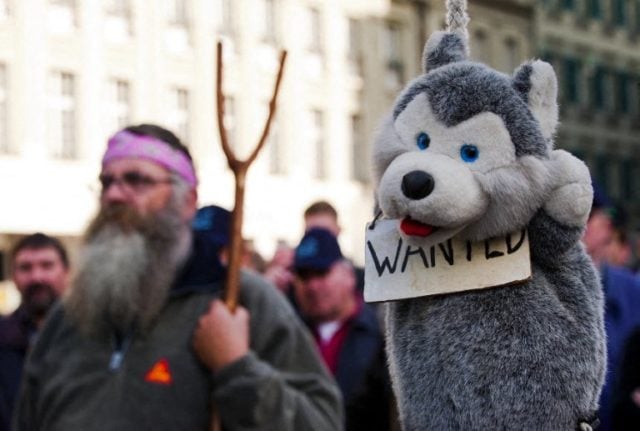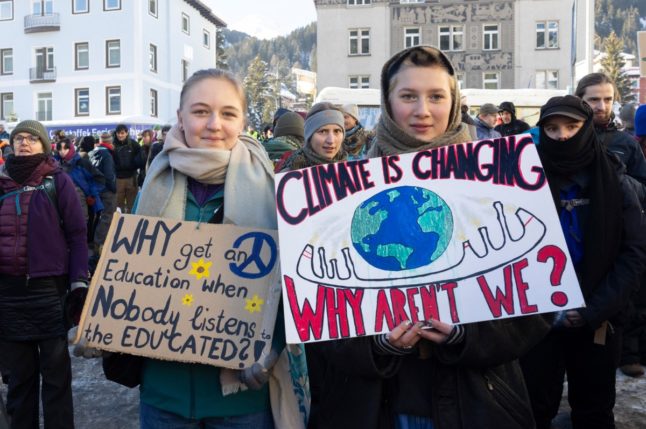Around a dozen breeders came from the Saint-Barthelemy area in the western Swiss canton of Vaud to lay out the carcasses of 12 sheep in front of the regional government headquarters in Lausanne, the Chateau Saint-Maire.
“These sheep were killed last night,” Eric Herb, a member of a Swiss association demanding the regulation of big predators, was quoted as saying by the Keystone-ATS news agency.
“It is really time to act.”
“We are sick of this. We want the wolf killed,” agreed Patrick Perroud, a farmer and butcher from the nearby municipality of Oulens.
“Cohabitation is not possible. Our territory is too small,” he told Keystone-ATS.
The protesters told the news agency that wolves had killed 17 sheep in the same area late last month, two earlier this week and 13 overnight to Saturday.
“The breeders have played nice until now, but this time it was too much,” Herb said.
The protesters were planning to increase the pressure on the Vaud government environment minister, Vassilis Venizelos of the Green Party, he said.
One of the protesters’ banners read: “Vassilis step down”, Keystone-ATS reported.
The breeders had briefly negotiated with regional police before being allowed to lay down the animal carcasses on tarpaulin in front of the Chateau.
Participants in the protest, which was supported by the regional chapter of the far-right Swiss People’s Party — Switzerland’s largest party — lamented that they were losing sleep.
“We have to check on our animals every night,” one was quoted as saying.
After being wiped out more than a century ago, wolves have in recent decades begun returning to Switzerland and to several other European countries.
Since the first pack was spotted in the wealthy Alpine nation in 2012, the number of packs swelled to 32 last year, with around 300 individual wolves counted.
Nature conservation groups have hailed the return as a sign of a healthier and more diverse ecosystem.
But breeders and herders complain of attacks on livestock and have been ramping up demands to cull more wolves.
Swiss authorities last year relaxed the rules for hunting the protected species, and decided to allow large preventative culls in the most affected cantons but swift legal actions put those plans partially on ice.
The debate in several parts of Europe about wolves rose up the political agenda in September.
In an open letter to the European Commission, eight leading conservation groups said there were ways to make coexistence easier between humans and large wild animals like wolves.
“Damage to livestock is often linked to the lack of adequate supervision and/or physical protection,” they said. They pointed to strategies such as “the training of dogs to protect herds, education of herders, tools and technical solutions to deter wolves”.



 Please whitelist us to continue reading.
Please whitelist us to continue reading.
Member comments